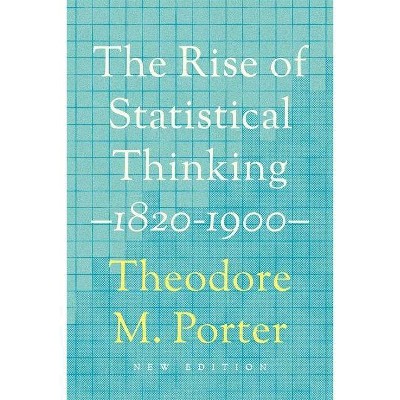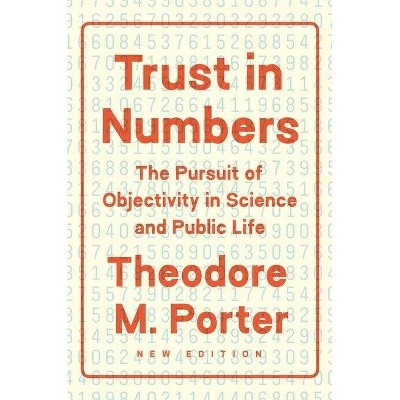Sponsored

Genetics in the Madhouse - by Theodore M Porter
Out of Stock
Sponsored
About this item
Highlights
- The untold story of how hereditary data in mental hospitals gave rise to the science of human heredity In the early 1800s, a century before there was any concept of the gene, physicians in insane asylums began to record causes of madness in their admission books.
- About the Author: Theodore M. Porter is Distinguished Professor of History and holds the Peter Reill Chair at the University of California, Los Angeles.
- 464 Pages
- History, Modern
Description
Book Synopsis
The untold story of how hereditary data in mental hospitals gave rise to the science of human heredity
In the early 1800s, a century before there was any concept of the gene, physicians in insane asylums began to record causes of madness in their admission books. Almost from the beginning, they pointed to heredity as the most important of these causes. Genetics in the Madhouse is the untold story of how the collection of hereditary data in asylums and prisons gave rise to a new science of human heredity. Theodore Porter looks at the institutional use of innovative quantitative practices--such as pedigree charts and censuses of mental illness--that were worked out in the madhouse long before the manipulation of DNA became possible in the lab. Genetics in the Madhouse brings to light the hidden history behind modern genetics and deepens our appreciation of the moral issues at stake in data work conducted at the border of subjectivity and science.From the Back Cover
"We've all been taught how genetics got its start in Mendel's pea patch. But the real story is more complicated, and a lot more interesting. In Genetics in the Madhouse, Theodore Porter chronicles some of the early history of heredity--not in gardens, but in asylums. The book is a fascinating exploration of the long-running conviction that madness, criminality, and other mental traits can be passed down from parent to child."--Carl Zimmer, author of She Has Her Mother's Laugh: The Powers, Perversions, and Potential of Heredity
"Porter's masterful book casts the fresh light of sanity over a previously uncharted sea of data on madness. He brings analytical order to an intriguingly chaotic subject, illuminating the challenges of 'big data' from a past era when the plasticity of categorization resulted in data being deduced from conclusions, a problem with uncanny similarities to those we face today."--Stephen M. Stigler, author of The Seven Pillars of Statistical Wisdom
"Important and original. Drawing on a wealth of archival research in many languages across many different national settings, Porter reexamines the role of psychiatry in the study of human heredity. Genetics in the Madhouse is an enormously impressive book."--Andrew Scull, author of Madness in Civilization: A Cultural History of Insanity, from the Bible to Freud, from the Madhouse to Modern Medicine
"A very significant contribution to the history of the human sciences, statistics, and eugenics. Porter rewards readers not only with astonishing insights into nineteenth-century data collection on the mentally ill and feebleminded, but also with the pleasure of reading a good, intriguing story."--Staffan Muller-Wille, coauthor of A Cultural History of Heredity
Review Quotes
"One of Science News' Favorite Science Books of 2018"
"Winner of the Cheiron Book Prize, Cheiron: The International Society for the History of Behavioral & Social Sciences"
"Winner of the Pfizer Award, History of Science Society"
About the Author
Theodore M. Porter is Distinguished Professor of History and holds the Peter Reill Chair at the University of California, Los Angeles. His books include Karl Pearson: The Scientific Life in a Statistical Age (Princeton).
















